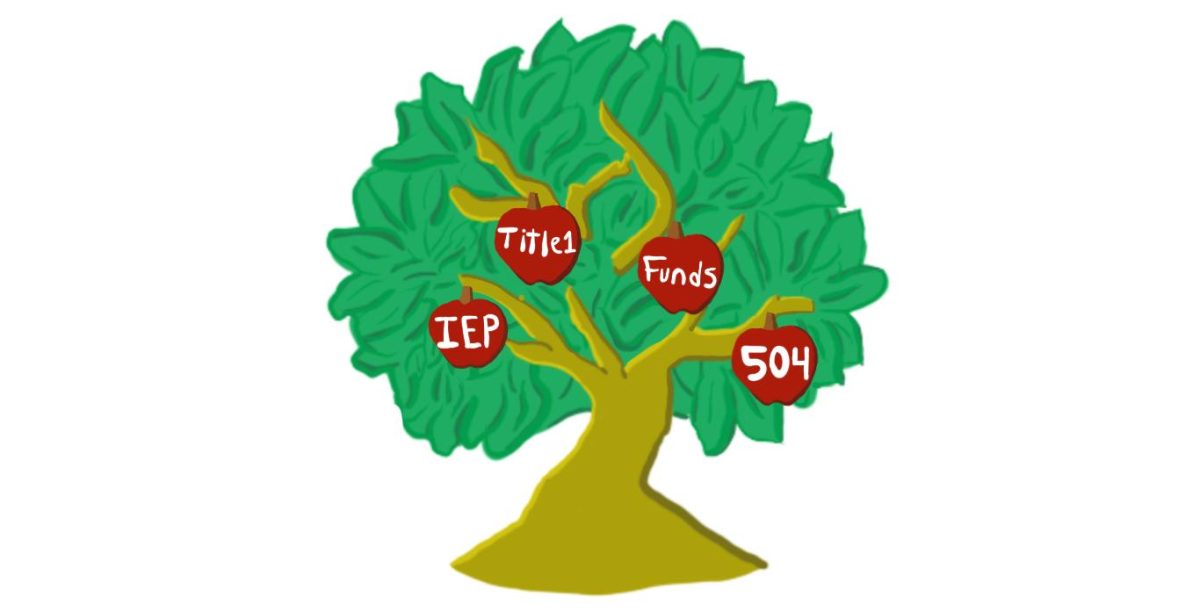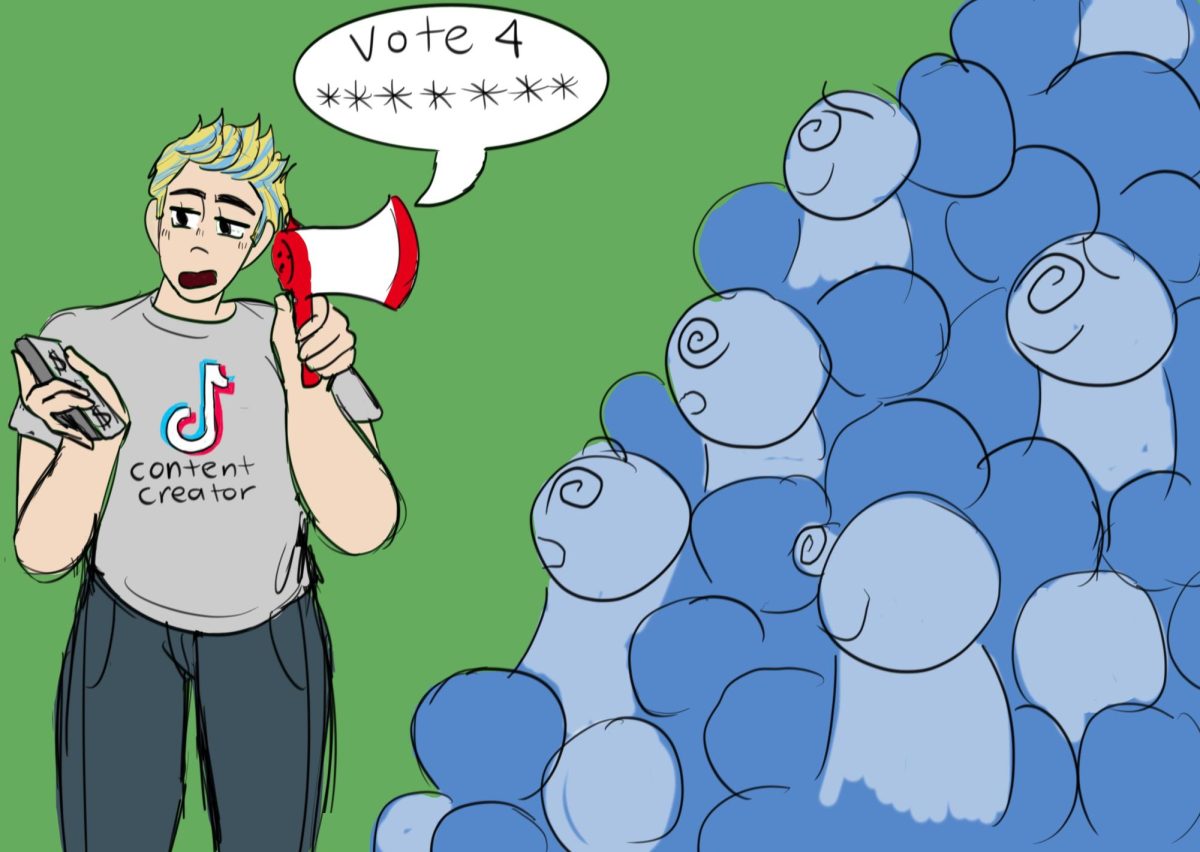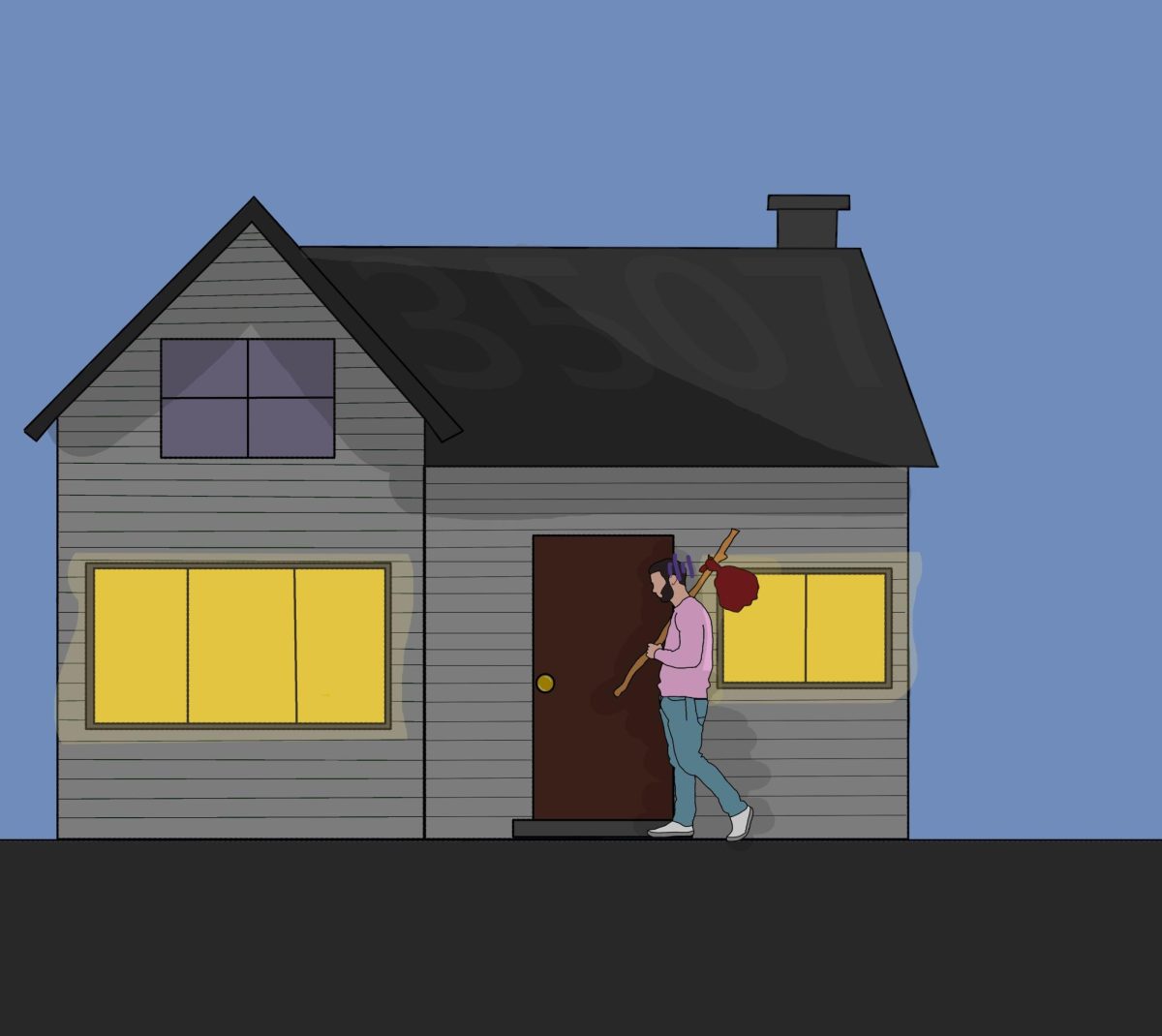YES:
High school students managing their academic lives while working a job does not seem practical at first however with proper time management skills, having a job in high school is beneficial for those looking for a support system. Various different types of jobs are available for high school students to apply for, an example would include retail, which is the most common for students to take on.
In any sort of context when it comes to jobs, school and even friendships, communication is key to maintaining a healthy position in these communities. In the New York Times article What students are saying about having a part time job while in school, a working high school student from Donovan High School shares her work experience and personal skills during an interview— “I was super shy before I started [working] and now I am more confident with myself … I have learned communication skills with people that I do not know.”
As a result of the various skills jobs require such as maintaining consistent communication with co-workers, managers and even customers, students have increasingly become more social. Thus, expanding students’ social skills and allowing them communication that is needed to maintain a position in the workforce.
Being a high school student and having a source of income comes with many benefits, one being able to provide for family and another is saving up for one’s educational life after high school. As the article Should students hold jobs while in high school, provided by Walden University states, “Working is necessary to help the family make ends meet or to save for college.”
Moreover, students are given the choice on where to use their money whether it be for personal use, family, or saving up to pursue education at community college or 4 four-year universities. Having options and control helps teach students how to allocate or distribute income evenly so that they are less likely to run into financial problems in the future.
With Honors, Advanced Placement (AP), and International Baccalaureate (IB) classes being widely taken among high school students, students are most likely to become stressed from the workload and day-to-day schedules. However, adding in a job allows students to adapt to a new schedule and effectively manage their schedules to even out their time between both classes and work shifts.
In the article Students and part time work produced by the College Board, it is stated that “Students who work are more confident and possess better time-management skills than students who are not employed.”
Therefore, students who do not work are most likely to struggle in maintaining a constant schedule, compared to students who do work. Those who work can find a way to adapt to new responsibilities and effectively maintain both aspects of their lives.
According to Round Table reporter Lauren Cevallos in an article ]Teens get jobs to help pay for college, “Teenagers are set apart among adults because unlike them they go to school full time, giving them the option to either get a job or not…Many students rely on that money to pay for an even more important expense – college.”
Post-high school education is a big part of a person’s educational plans in their tertiary education after high school, as previously mentioned. College tuition has a heavy impact on most students as it can be quite pricey and can be pricey for most students, especially for those who come from low-income households; fortunately, with a part-time or full-time job, students can both save up and pay for their college tuition and. Moreover, students can cover other expenses, whether they are working during high school or college. and increase their social skills within communities.
NO:
A highschool student is often placed on a fast-paced schedule as they manage their academic lives, undergo important experiences and are constantly developing skills, leaving no room for a minimum wage job as a student. While in a few instances, there are times a teenager should be allowed to work to provide for their family, generally, it brings more harm than it does benefits. Not only does having a job worsen stress for a highschool student but, it takes away the time for valuable memories and experiences of a highschool student.
Moreover, managing a job in high school takes away from time in students’ schedules to focus on education and extracurricular activities. In California 16 and 17 year olds are only permitted 40 hours a week, which is a significant amount of time that takes away from an individual’s free time. It is imperative for students to be dedicated to school and find their passions, as well as cognitive skills people must have as they pursue higher education which include time management, note taking, cooperation, listening and many more.
In fact, evidence reveals that students who have a job are likely to receive lower grades. According to CNBC, a business and news website, “students who worked more than 20 hours a week had much lower grade point averages — 2.95 on average.” It is also especially difficult for students to balance quality performance at work while producing the same quality schoolwork. It is widely encouraged for students to engage in extracurricular activities which offer the opportunity to discover interests with peers in a community oriented environment. Having a job, especially working over twenty hours a week, takes away from these valued things drastically.
The needed skills that come from high school in terms of education and socialization are imperative for the future. However, the skills that are gained from working have the opportunity to be gained further in an adolescent’s life when most people begin their careers. Not only would students miss out on connections with friends and their school community, but students who work risk entering a job market that sacrifices the positive experiences that make up youth.
Furthermore, it is important to bring attention to the various detrimental effects. While working can give a student an extra boost of income for themselves or their family, it does not outweigh the effects that working as a highschool student has on mental health. According to the Washington Post, a daily newspaper, people who work a shift schedule face a “22 percent greater chance of developing depression”, as well as a “16 percent greater chance for developing anxiety.” The effects of working can accumulate into an increased amount of stress when combined with the sacrifices it has to education, students should not not have to maintain a job as well.
In a time where large corporations hold the most power, they are likely to hire teenagers because they can pay lower salaries due to student hour restrictions, rather than discriminated groups of individuals like single parents, who need a larger salary and have higher rates of unemployment. According to Macrotrends, “U.S. unemployment rate for 2021 was 5.35%”, while for single mothers according to Census.gov, the unemployment rate for single mothers was 6.0%. Perpetuating a society that encourages teenagers to work will only worsen this problem with the greed that is present in companies.
As stated previously, low grades as well as lower participation in extracurricular activities as a result of working can decrease the chances of attending a college with a good education, as well as chances of receiving scholarships to relieve a financial burden. Without these, teenagers can be led to enter a monotonous life of living paycheck to paycheck early, all in a bad economy. Moreover, students who were not present in school to learn valuable skills have lost these skills that are needed to gain from education, they are less likely to receive a higher-paying job.
While some may argue the benefits that can come from working a job and freedom students should be given to make these decisions for themselves, looking at the situation as a whole, there are more drawbacks to it than positives. The negative impact on a students academic and personal life as a result of balancing a job is heavy and not something to be taken lightly.









